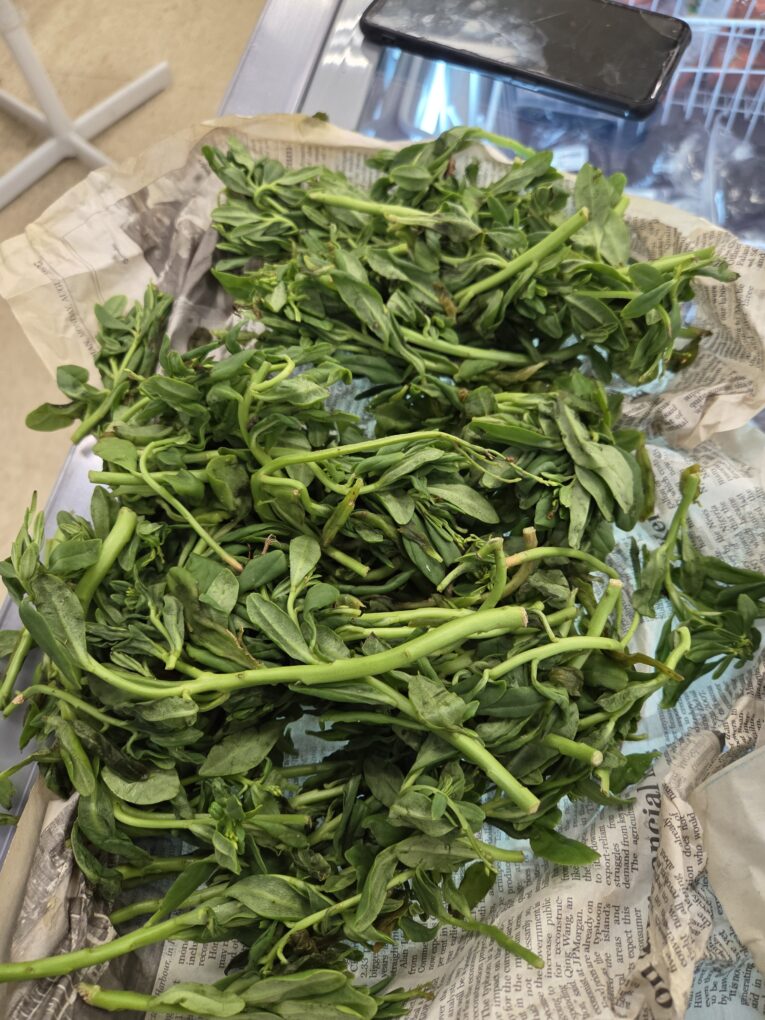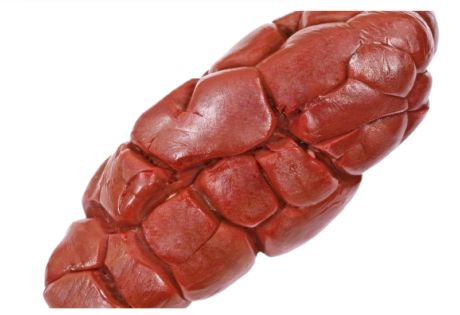| waterleaf |
Description
Waterleaf (Talinum triangulare) is a soft, juicy, and nutrient-rich leafy vegetable popular in Nigerian cuisine. It has small, smooth leaves and a slightly tangy flavor that blends well with other vegetables. Known as Gbure in Yoruba, Mgbolodi in Igbo, and Alenyru in Hausa, waterleaf is often used fresh in soups and stews. It is a key ingredient in many vegetable-based Nigerian dishes and is also valued for its numerous health benefits.
Sources
Commonly cultivated in home gardens and farmlands across Nigeria, especially in the southern and middle belt regions. It grows abundantly during the rainy season but can be cultivated year-round with adequate watering.
Health Benefits
-
Rich in vitamins A and C for improved vision and immune function.
-
High in dietary fiber, which supports digestion and bowel health.
-
Lowers cholesterol and promotes heart health.
-
Contains antioxidants that help fight free radicals in the body.
-
Aids weight management due to its low calorie and high water content.
Common soups or dishes you can use it for
-
Edikang Ikong soup
-
Afang soup
-
Vegetable yam porridge
-
Stir-fried vegetable sauce
-
Waterleaf and okra soup
CA$6.00
165 in stock
- Fast Delivery
- All Items Top Best Quality
- 24/7 Support
| Weight | 0.1 kg |
|---|---|
| Dimensions | 17.7 × 20.5 cm |
Only logged in customers who have purchased this product may leave a review.
Ugwu- per pack (Subscriber price only)
Description
Ugu (Telfairia occidentalis), known as fluted pumpkin leaves, is one of Nigeria’s most popular and nutritious vegetables. The leaves are tender, slightly sweet, and have a rich green color, often used fresh in soups, stews, and sauces. The seeds of the plant are also edible and can be roasted or used in traditional meals.
Sources
Edo, Delta, Anambra, Imo, Enugu, and Cross River states.
Health benefits
-
Rich in iron – helps prevent and treat anemia.
-
High in vitamins A and C – supports vision, skin health, and boosts immunity.
-
Good source of calcium – strengthens bones and teeth.
-
Improves blood production – boosts hemoglobin levels.
-
Supports reproductive health – traditionally believed to enhance fertility.
Common soups you can use it for
-
Edikang Ikong Soup
-
Egusi Soup
-
Vegetable Soup (mixed leaves)
-
Ogbono Soup
-
Okra Soup
TETE (Local Green Spinach) – per pack (Subscriber price only)
Description
Tete, also called African spinach or amaranth leaves, is native to Africa and Asia. It has been cultivated in Nigeria for centuries and is a staple green vegetable in many traditional dishes.
Sources
Oyo, Ogun
Health benefits
-
Rich in iron – helps prevent anemia and boost energy.
-
High in vitamins A and C – supports vision, immunity, and healthy skin.
-
Good source of dietary fiber – aids digestion and supports gut health.
-
Contains calcium – important for strong bones and teeth.
-
Low in calories – great for weight management.
Common soups you can use it for
-
Efo Riro (Yoruba vegetable stew)
-
Efo Elegusi (vegetable with melon seed soup)
-
Ogbono Soup (as an added leafy green)
-
Okra Soup
-
Mixed Vegetable Stew
Scent leaves -Efirin – per pack (Subscriber price only)
Description
Scent leaf, scientifically known as Ocimum gratissimum, is a highly aromatic herb widely used in Nigerian cooking for its strong, pleasant fragrance and flavor. Known as Efinrin in Yoruba, Nchanwu in Igbo, and Daidoya in Hausa, it adds a unique taste to soups, stews, and sauces. Aside from its culinary role, scent leaf is also valued for its medicinal and health-boosting properties in traditional medicine.
Sources
Grown across Nigeria, particularly in home gardens and farms in the South-West, South-East, and Middle Belt regions. It thrives in both the rainy and dry seasons.
Health Benefits
-
Boosts immunity due to its rich content of vitamins and antioxidants.
-
Aids digestion and helps relieve bloating and stomach discomfort.
-
Antibacterial and antifungal properties help fight infections.
-
Helps regulate blood sugar when consumed regularly.
-
Relieves cough and cold when boiled and taken as herbal tea.
Common soups or dishes you can use it for
-
Pepper soup
-
Yam porridge
-
Ofada sauce (Ayamase)
-
Vegetable sauce for rice or yam
-
Ogbono soup (for added flavor)

















Reviews
There are no reviews yet.